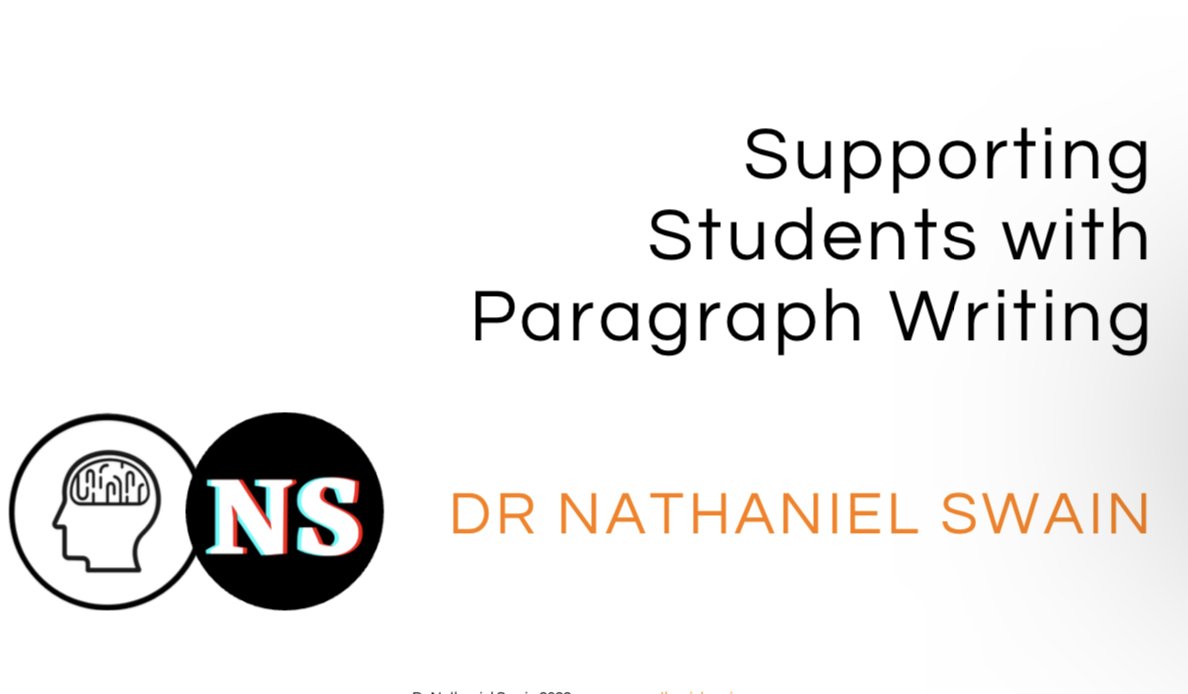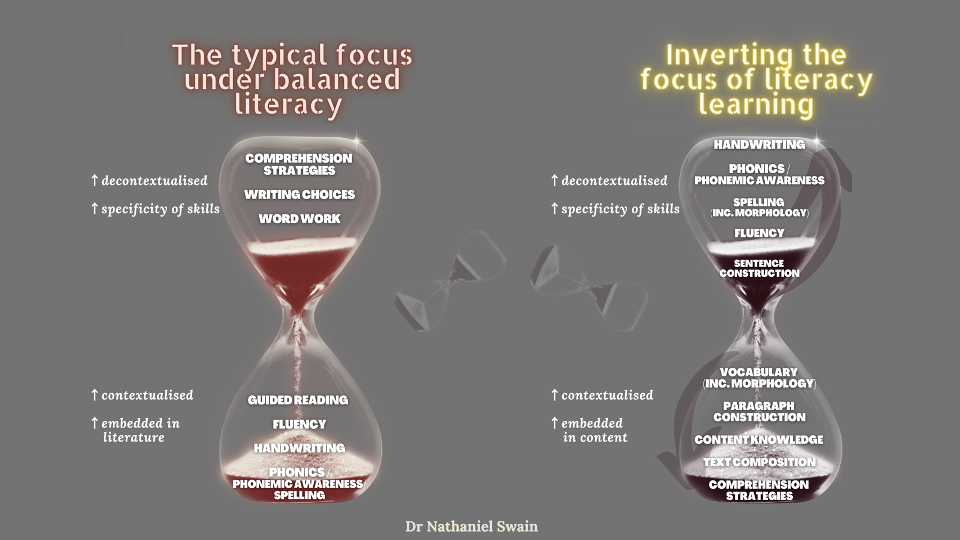Subscribe to the cognitorium
to access SLIDES from recent talks and other Subscriber Downloads
Here’s a preview!
Supporting students with Paragraph Writing

Slides from Tutor Learning Initiative Presentation
Inverting the legacies of balanced literacy presentation

Slides from Dr Swain’s SBP Presentation
Intermediate / Advanced Spelling through Morphology

Year 1 Mesopotamia Unit (adapted from Core Knowledge)
Year 3 Vikings Unit (adapted from Core Knowledge)
Learning and Engagement Icons Key PDF (adapted from icon set by Brad Nguyen)
Slides from Tutor Learning Initiative Presentation

OTHER POSTS
If you haven't listened to or read the latest APM Report from Emily Hanford, this is really a must. A multifaceted look at the importance of oral language, background knowledge, and effective instruction for reading comprehension, Hanford’s report sheds light on the cruel intersections and interactions between race, family income, poverty, and educational failure.
As part of a postgraduate qualification in Primary Teaching I had the privilege of studying how to teach the humanities and social sciences. As a BA graduate, I was thrilled. I soon discovered, however, that inquiry-based, constructivist pedagogies were touted by the lecturer as the only acceptable approach to teaching this learning area. Given the research into the limits of constructivist approaches (especially for novices), this was disheartening…
Winstanley et al. (2019). Dr Maxine Winstanley, a very accomplished colleague of mine from the UK, has had a career as a police officer before training as a speech-language pathologist and undertaking a PhD. This new paper is based on her work with young people in the north of England – mostly as they first make contact with the youth justice system. Here’s a brief overview, relevant for all working (or interested) in the youth justice space.























